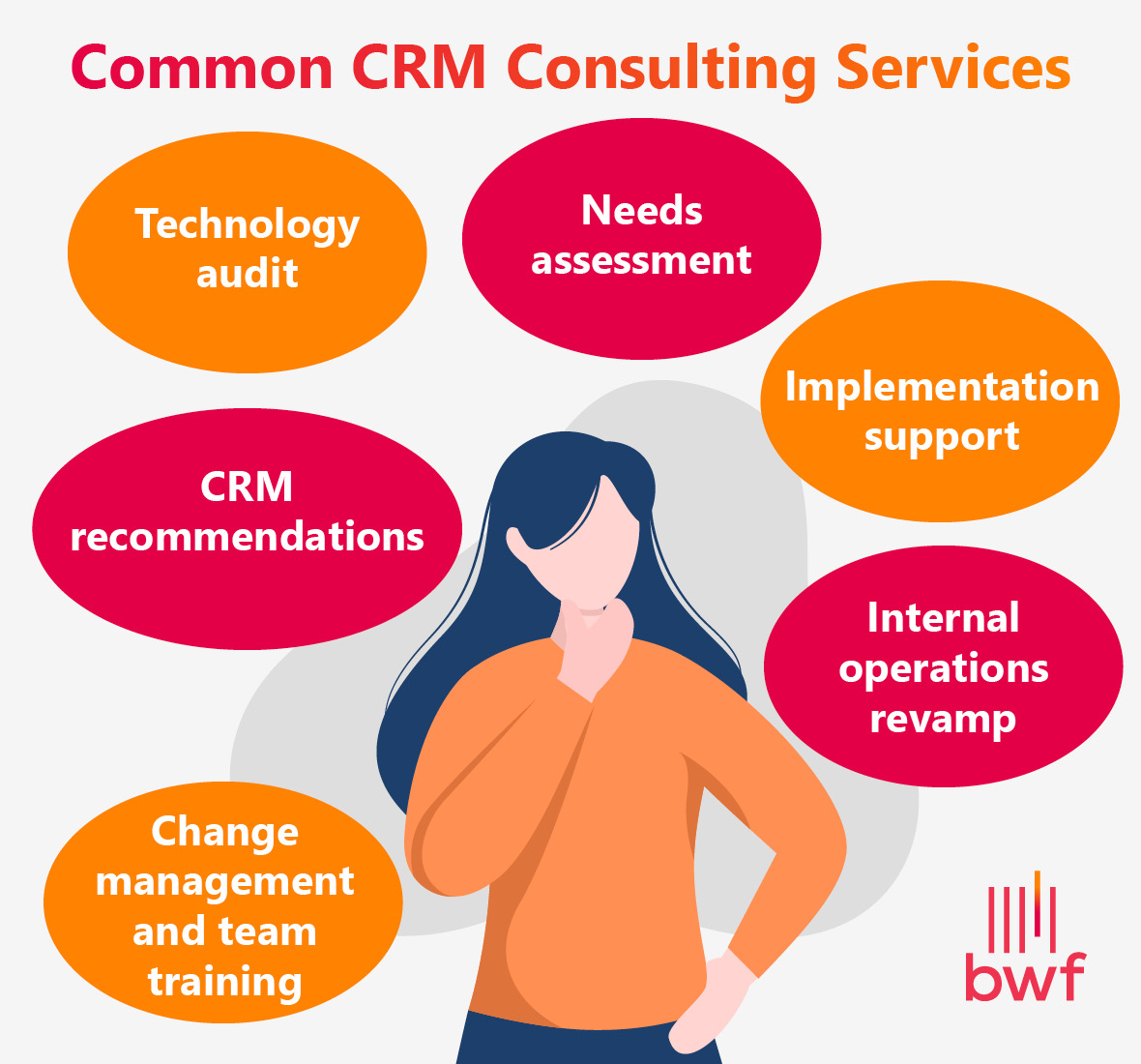CRM Change Management Consulting plays a crucial role in helping businesses navigate the complex process of implementing and managing customer relationship management (CRM) systems. As organizations recognize the importance of leveraging CRM technologies to drive growth and improve customer experiences, the need for expert guidance in managing this change becomes increasingly apparent.
At XYZ Consulting, we understand the challenges that come with implementing a CRM system and the potential roadblocks that can hinder its successful adoption. Our team of experienced consultants specializes in change management strategies tailored specifically for CRM implementations. We work closely with our clients to develop comprehensive plans that address the unique needs and goals of their organizations, ensuring a smooth transition and maximizing the benefits of CRM adoption.
In today’s rapidly evolving business landscape, integrating and effectively utilizing a CRM system is no longer a luxury but a necessity. However, the process of implementing and managing CRM change can be overwhelming, with numerous factors to consider and potential obstacles to overcome. At XYZ Consulting, we offer expert CRM Change Management Consulting services to guide your organization through this complex journey, ensuring a seamless transition and successful adoption of CRM technologies.
What Is CRM In Change Management?
CRM, which stands for Customer Relationship Management, is a crucial tool in change management. It refers to the strategies, technologies, and practices that organizations use to manage and analyze customer interactions and data throughout the customer lifecycle. CRM systems help businesses build and maintain strong relationships with their customers by providing a centralized platform for managing customer information, interactions, and transactions.
In the context of change management, CRM plays a vital role in facilitating the smooth transition from existing processes to new ones. By leveraging CRM tools, organizations can effectively track and manage the impact of change on their customers. CRM systems enable businesses to capture customer feedback, address concerns, and provide personalized support during times of change. This ensures that customers feel valued and supported throughout the change process, ultimately leading to higher customer satisfaction and loyalty.
Moreover, CRM in change management helps organizations align their business processes and customer strategies. By understanding customer needs, preferences, and behavior, businesses can tailor their change initiatives to meet customer expectations and requirements. CRM systems provide valuable insights into customer data, allowing organizations to identify trends, anticipate customer needs, and make informed decisions during the change process. This customer-centric approach helps businesses minimize resistance to change and increase the likelihood of successful implementation.
In conclusion, CRM plays a vital role in change management by enabling organizations to effectively manage customer interactions and data throughout the change process. CRM systems help businesses build strong relationships with their customers, capture feedback, and provide personalized support during times of change. By aligning customer strategies with change initiatives, organizations can enhance customer satisfaction, minimize resistance to change, and increase the likelihood of successful implementation.
Does Mckinsey Do Change Management?
Yes, McKinsey does provide change management services. Change management is a crucial aspect of any organization’s transformation journey, and McKinsey, being one of the leading management consulting firms globally, offers a range of services to help companies navigate through change successfully. Their change management expertise helps organizations implement new strategies, technologies, and processes while minimizing resistance and maximizing employee engagement.
McKinsey’s approach to change management focuses on understanding the organization’s culture, identifying potential barriers to change, and developing tailored strategies to address those challenges. They work closely with their clients to design and execute change programs that drive sustainable results. With their extensive experience and deep industry knowledge, McKinsey’s change management consultants provide valuable insights, frameworks, and best practices to support organizations in effectively managing change.
Furthermore, McKinsey adopts a holistic approach to change management, considering not only the organizational and structural aspects but also the human element of change. They emphasize the importance of effective communication, leadership alignment, and employee involvement in the change process. By leveraging their expertise in change management, McKinsey helps organizations build change capabilities, foster a culture of continuous improvement, and achieve their transformation objectives.
What Is The Mckinsey Change Management Methodology?
The McKinsey change management methodology is a structured approach used by the consulting firm McKinsey & Company to help organizations navigate and implement successful change. This methodology is designed to help organizations effectively manage change initiatives and ensure that they are executed smoothly and with minimal disruption. It is based on the understanding that change is a complex process that involves not only implementing new systems or processes but also managing the people and culture within an organization.
The McKinsey change management methodology consists of several key components. First, it emphasizes the importance of leadership and alignment in driving successful change. This means that leaders within the organization must be actively involved in the change process and must provide clear direction and support to their teams. Additionally, there must be alignment throughout the organization, with all employees understanding the rationale behind the change and how it will benefit the organization.
Another important aspect of the McKinsey change management methodology is the focus on building capabilities within the organization. This involves equipping employees with the necessary skills and knowledge to adapt to and implement the change. It also includes creating a supportive environment that encourages employee engagement and collaboration.
Overall, the McKinsey change management methodology provides organizations with a systematic framework for managing change. By following this methodology, organizations can increase their chances of successfully implementing change initiatives and driving long-term organizational transformation.
How Do I Become A Good Change Management Consultant?
To become a good change management consultant, there are several key steps you should follow. First and foremost, you need to have a strong understanding of change management principles and methodologies. This includes being familiar with industry best practices and staying up-to-date with current trends and developments. It is also important to have excellent communication and interpersonal skills, as you will be working closely with clients and teams to implement change initiatives. Being able to effectively communicate complex ideas and build rapport with stakeholders is crucial in this role.
In addition to technical knowledge and skills, it is essential to have a strong business acumen. This means having a deep understanding of how organizations operate and being able to identify potential risks and challenges associated with change initiatives. You should also be able to analyze data and make evidence-based decisions to drive successful change outcomes. Having a solid understanding of project management principles and methodologies is also beneficial, as change management often involves coordinating and overseeing multiple projects simultaneously.
Furthermore, to become a good change management consultant, it is important to continuously learn and develop your skills. This can be achieved through attending relevant training programs, obtaining certifications, and participating in professional development activities. Additionally, seeking mentorship from experienced change management professionals can provide valuable insights and guidance. By constantly seeking to improve your knowledge and skills, you will be better equipped to navigate the complexities of change and deliver positive outcomes for your clients.
In conclusion, becoming a good change management consultant requires a combination of technical knowledge, strong communication skills, business acumen, and continuous learning. By following these steps and investing in your professional development, you can position yourself for success in this rewarding and impactful role.
Crm Change Management Consulting Pty Ltd
CRM Change Management Consulting is a service provided by Crm Change Management Consulting Pty Ltd. This consulting firm specializes in helping organizations manage the process of implementing and adapting CRM (Customer Relationship Management) systems. CRM systems are designed to streamline and improve customer interactions, sales processes, and overall business performance. However, implementing a CRM system can be complex and challenging, requiring careful planning and execution. That’s where CRM Change Management Consulting comes in. They provide expert guidance and support to help organizations successfully navigate the change management process associated with CRM implementation.
If you are wondering how to effectively manage the change associated with implementing a CRM system, here is a step-by-step tutorial:
- Assess your current state: Evaluate your organization’s current processes, systems, and culture to understand the impact of CRM implementation.
- Define your CRM goals: Clearly define what you want to achieve with your CRM system and how it aligns with your overall business strategy.
- Create a change management plan: Develop a comprehensive plan that outlines the steps, resources, and timeline needed to successfully implement CRM.
- Communicate and involve stakeholders: Engage and communicate with employees, managers, and other stakeholders to gain their support and address any concerns or resistance.
- Train and educate users: Provide training and support to ensure employees understand how to effectively use the CRM system and embrace the change.
- Monitor and evaluate: Continuously monitor the implementation progress and gather feedback to identify areas for improvement and ensure the CRM system is meeting your goals.
CRM Change Management Consulting Pty Ltd is committed to helping organizations successfully navigate the change associated with CRM implementation. They have a team of experienced consultants who can provide customized solutions and support tailored to your organization’s specific needs. By partnering with CRM Change Management Consulting, you can ensure a smooth and successful transition to a CRM system that will enhance your customer relationships and drive business growth.
Create a simpler crm with this ONE change
In conclusion, CRM change management consulting plays a vital role in helping businesses navigate the complex process of implementing and managing customer relationship management systems. By providing expert guidance and support, consultants ensure that organizations are able to effectively adapt to the changes brought about by CRM implementation, maximizing the benefits and minimizing any potential disruptions. From assessing the current state of the organization to developing a comprehensive change management strategy, these consultants offer a holistic approach that addresses both the technical and human aspects of CRM implementation. Ultimately, CRM change management consulting is a valuable investment for businesses seeking to enhance their customer relationships and drive long-term success.
By partnering with CRM change management consultants, businesses can unlock the full potential of their customer relationship management systems. These professionals bring extensive knowledge and experience in managing organizational change, ensuring a smooth transition and successful adoption of CRM technology. Their expertise in analyzing business processes, identifying potential roadblocks, and designing customized change management plans enables organizations to optimize the benefits of CRM implementation. With their guidance, companies can overcome resistance to change, foster employee engagement, and align their CRM strategy with overall business objectives. In today’s competitive landscape, CRM change management consulting is not just a luxury but a necessity for organizations looking to stay ahead and deliver exceptional customer experiences.
Let’s Make Your CRM Work
Let us remove the manual effort and time it takes to effectively manage client relations systems and data
“Using Pipedrive’s CRM is one of the best decisions we’ve ever made. We’ve seen our annual revenue explode, and the outlook just keeps getting sunnier.”
Mitch Workman
Digital Marketing Director, Big Dog Solar | Energy Sector | USA







